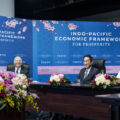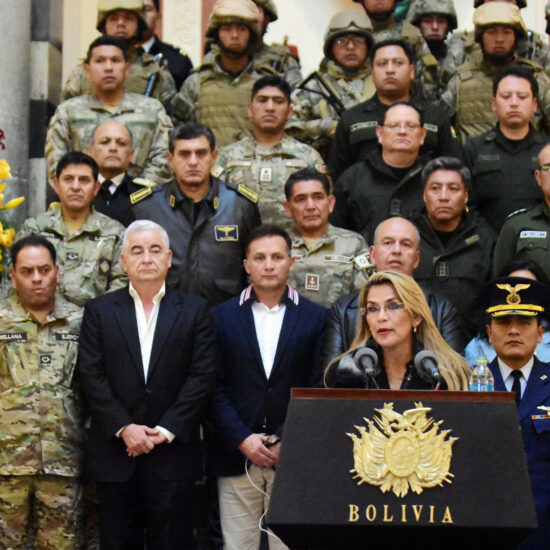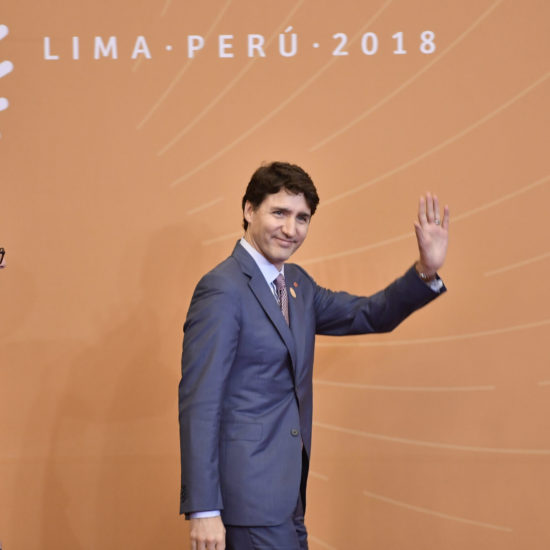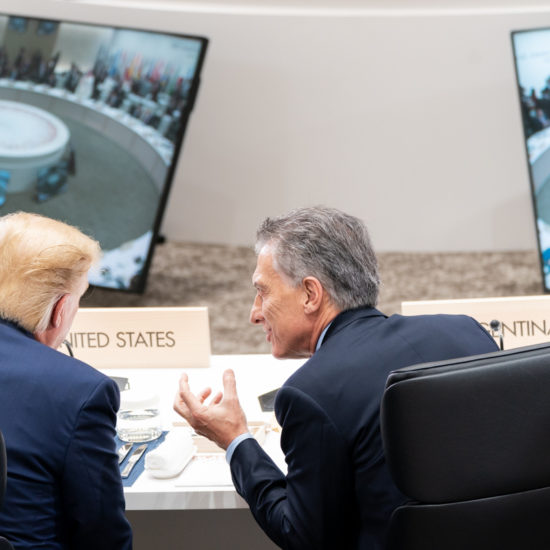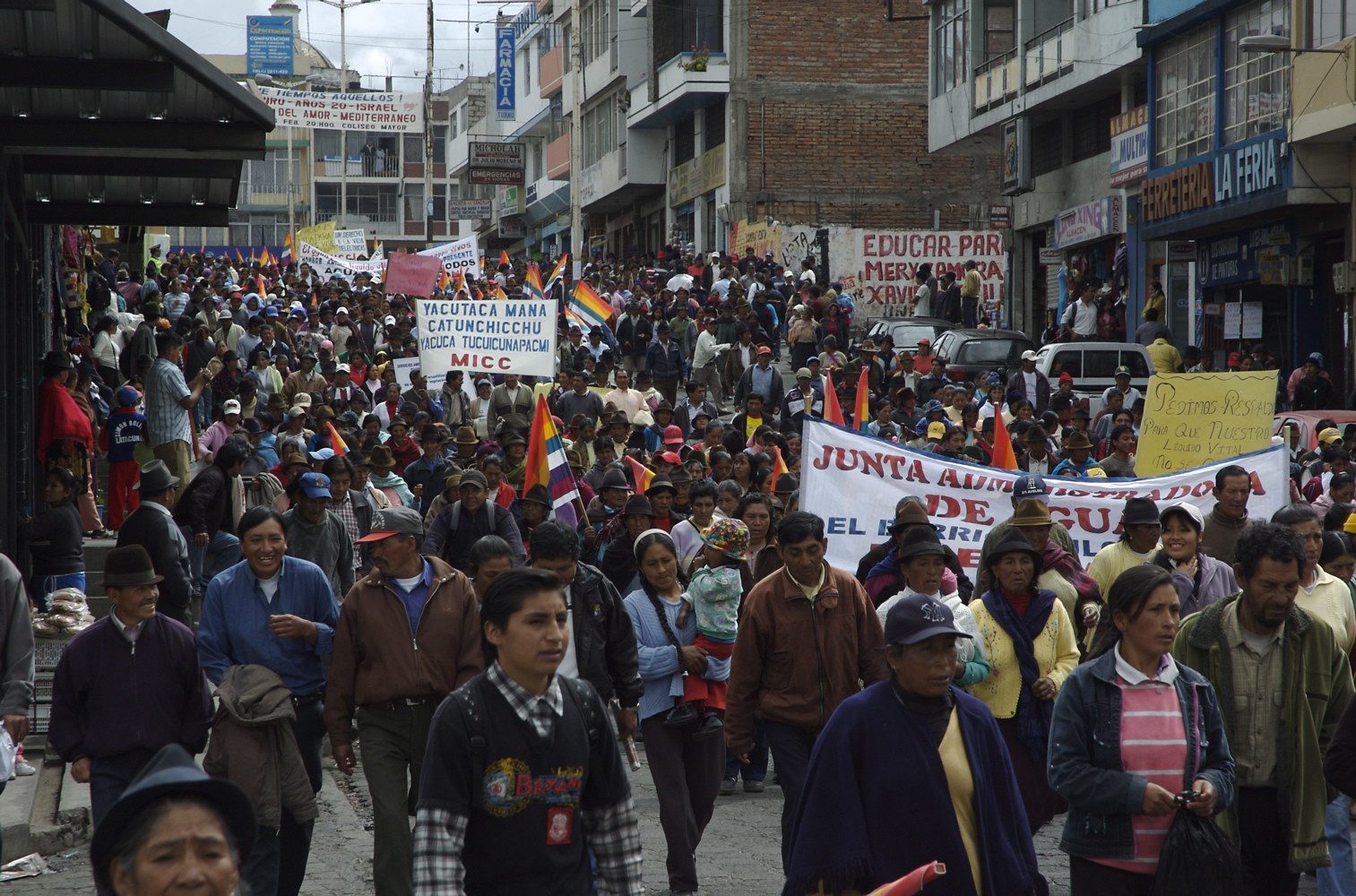
Image credit: Water Alternatives
By Amadeus Narbutt
A few weeks ago a massive public demonstration against austerity spontaneously erupted in the Ecuadorian capital of Quito. Led by a stunning coalition of indigenous people under the banner of the Confederation of Indigenous Nationalities of Ecuador (CONAIE), the protests brought Quito to a stand-still. Thousands of indigenous protestors descended upon Quito from the Andes and the Amazon, converging on Quito’s El Arbolito Park which, like Occupy Wall Street’s Zuccotti Park, acted as a focal point for the city-wide protest. President Lenin Moreno commanded the Ecuadorian Army onto the streets of the capital to institute a 24-hour curfew in an attempt to restore order. The protests began in response to Moreno’s application of the International Monetary Fund’s (IMF) restructuring plans, a requirement for Ecuador’s $4.2 billion loan from the fund. This restructuring imposed ‘belt-tightening’ measures for the Ecuadorian government, including wage cuts for public sector jobs, vacation day cuts, and most controversially, the elimination of a fuel subsidy which cause the price of diesel to double and the price of gasoline to rise by 30% overnight. The protests had a significant impact on Ecuador’s immediate economic output, which likely led to President Moreno’s eventual compromise with the protestors. Estimates state that the protests resulted in a $2.3 billion loss of economic productivity during the two weeks of unrest, including a 40% drop in oil production.
In recent days, the protests have subsided, mainly due to marginal concessions from the Moreno government. While Moreno has repealed the IMF package known as Decree 883, he has already announced that a slightly modified package will be put in place instead. In other words, restructuring will still occur. At most, Moreno has bought himself some time before protests ignite in response to whatever repackaged IMF deal he implements in the coming weeks. The human cost of this delay? Eight dead, 1300 injured, and 1200 arrested. Moreno’s compromise on Decree 883 was a victory for the protestors and indigenous activists in particular, but Moreno’s pivot towards right-wing governance has not been reversed. In fact, the propagandistic framing of the unrest as a means of saving face has already begun.
Moreno has blamed the protest on a cabal of “dark forces”, accusing his predecessor, Rafael Correa, of orchestrating the protests in coordination with Venezuelan President Nicolas Maduro, gang leaders, and violent foreigners. Correa, the former leftist President of Ecuador and political mentor to Moreno, is living in self-imposed exile in Brussels due to threats of arrest from his former ally Moreno. Their falling out stems from Moreno’s rightward turn after succeeding Correa and promising to continue his radically progressive ‘Citizen’s Revolution’. Correa rose to power in the Pink Tide – a continent-wide surge in anti-neoliberal leftist governments, from Lula’s Brazil to Evo Morales’ Bolivia and Chavez’s Venezuela. Under his tenure, Ecuador saw unprecedented advancements in the standard of living and the struggle against poverty. The Center for Economic and Policy Research (CEPR) reports that during Correa’s ten-year presidency, Ecuador’s poverty rate declined by 38% and rate of extreme poverty declined by 47%. The Council of Hemispheric Affairs (COHA) emphasizes Correa’s willingness to trounce the norms of neoliberalism and IMF-directed globalization, attributing it to the anti-neoliberal and anti-imperialist foundations of the Pink Tide movement.
Allying with other progressive leaders in Latin America through organizations like the Bolivarian Alliance for the Peoples of Our America (ALBA) – which worked towards regional political and economic integration – Correa helped lead the charge for regional sovereignty and against IMF and US-back economic imposition in Latin American affairs. Thus, Moreno’s wavering from this path of radicalism has been described by Correa as a ‘coup’ against his legacy. In return, Moreno has vilified Correa and begun to build a propagandistic campaign against him, in fear of his ability to reignite a progressive politics in Ecuador were he to return to the country. In addition to this fear, Moreno’s dramatic turn away from Correa’s progressive politics can also be attributed to his allying with Western foreign policy interests regarding Julian Assange’s stay in the Ecuadorian embassy in London. While Correa had been instrumental in granting Assange safe haven from American threats of arrest, Moreno capitulated to American diplomatic pressure and allowed Assange to be taken into custody.
Within Latin America, this story is not new. A similar script is playing out currently in Brazil under the rule of neo-fascist Jair Bolsonaro, who jailed the progressive and unprecedentedly popular Pink Tide-era President of Brazil, Lula da Silva, preventing his reemergence on the political stage. Lula’s successor, Dilma Roussef, was ousted in a judicial coup with Washington’s blessing. All of these actions served the purpose of furthering economic neoliberalization and American domination of continental politics. The repression of progressive political voices across Latin America is a historical norm, and it has been carried out through corrupt legal practices, media propaganda campaigns, and US military interventions, assassinations, and coups. However, as repetitive as such actions may be across the continent, Ecuador has its own unique historical motif: the power of indigenous activists. On three occasions since 1997, indigenous protesters and activists have succeeded in removing Ecuadorian Presidents from office. The last time this occurred was in 2005, in response President Gutierrez’s acceptance of similarly harsh IMF-imposed restructuring plans. However, the leader of CONAIE, Jaime Vargas, has stated that it is not the current intention of the indigenous movement to remove Moreno.
Unless Moreno and the IMF are willing to deviate significantly from their original course of action, the indigenous peoples of Ecuador may again rise to the occasion and force a change. These recent protests have served as one of the most significant public pushbacks against globalization and neoliberal orthodoxy in recent years, showing that there is still some vigor left in the remnants of the Pink Tide.

